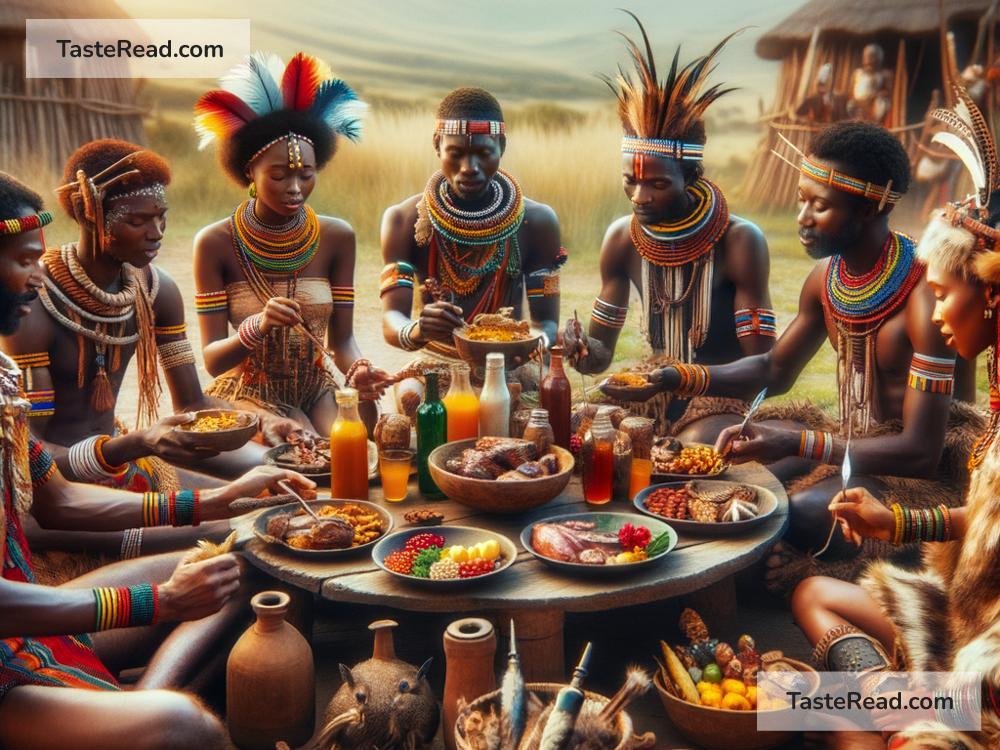The Role of Food in African Tribal Rituals
Food has always been an important part of human life, not just as a source of nourishment but also as a symbol of culture, tradition, and connection. In Africa, food plays a crucial role in tribal rituals, serving as a bridge between the physical and spiritual worlds. These ceremonies, rituals, and festivals celebrate life’s milestones, honor ancestors, and maintain harmony within communities. Whether it’s welcoming a child, celebrating marriage, or mourning a loved one, food is often at the center of these traditions.
In this article, we will explore the role of food in African tribal rituals, how it serves as a representation of community, spirituality, and heritage, and why it remains a vital aspect of African tribal life.
Food as a Symbol of Connection and Unity
In many African tribes, sharing food is considered the ultimate act of togetherness and unity. Food is never just about eating—it is about creating bonds with family, friends, and the community. During rituals, meals are often prepared collectively, which strengthens relationships and fosters teamwork. Men, women, and even children contribute their skills to cooking and preparing ritualistic meals, reflecting a sense of belonging.
For example, at initiation ceremonies for young males transitioning into adulthood, tribes such as the Xhosa in South Africa may slaughter cattle or goats, commonly seen as sacred animals. The meat is shared among family members and the community to mark the young man’s journey into responsibility and adulthood. The sharing of the food isn’t just nourishing the body—it’s nourishing the soul, fostering a connection between people and their cultural identity.
Food as an Offering to Ancestors and Spirits
African tribal rituals are deeply tied to spirituality, and food often plays an important role in communication with ancestors and spirits. To many tribes, ancestors are revered and believed to have the power to protect, guide, and bless the living. Offering food to the ancestors is considered an act of respect and gratitude.
In ceremonies honoring ancestors, traditional food like millet porridge, yams, palm wine, or goat meat may be placed at shrines or burial sites. These offerings are symbolic gestures to ensure that the spirits receive nourishment and stay in harmony with the living. For instance, the Yoruba tribe in Nigeria often conducts Egungun ceremonies, during which food and drinks are offered to the spirits of the ancestors. These rituals strengthen the bond between the living and the dead, ensuring peace and prosperity for the community.
Additionally, food offerings are also used to appease spirits and seek their blessings during difficult times, such as drought, disease, or conflict. By giving food to supernatural forces, communities express their faith and seek divine intervention in their lives.
Food in Sacred Celebrations and Festivals
African cultures are rich with vibrant festivals and sacred celebrations, and food is always at the heart of these events. Festivals are often held to mark seasonal changes, harvest cycles, or religious events. These gatherings are full of music, dance, and feasting.
One example is the Yam Festival, held in parts of West Africa such as Ghana, Nigeria, and Ivory Coast. Yams are a staple food and a symbol of prosperity, so this festival celebrates their harvest as a blessing for the community. Before eating the newly harvested yams, they are first offered to the gods and ancestors, seeking their protection and blessings for the coming year.
Similarly, during fertility rituals in some tribes, specific foods associated with reproduction and growth are prepared and consumed. Foods like eggs, honey, and fruits might symbolize fertility and the hope for healthy children. These ceremonies highlight the close ties between food and the cycle of life.
Food in Marriage and Courtship Rituals
Marriage rituals across African tribes incorporate food as a way to symbolize love, unity, and partnership. In some tribes, food plays a key role in the courtship process. For example, in Swahili culture, a groom’s family may prepare a feast for the bride’s family as part of a marriage proposal. This gesture demonstrates respect, generosity, and the willingness to care for the bride in the future.
During weddings, there is often an abundance of food, with traditional dishes prepared as a sign of celebration and prosperity. Families and friends come together to enjoy these meals, marking the start of a new journey for the couple. The act of sharing food at weddings builds relationships not only between the newlyweds but also among the extended families and community.
Food as a Cultural Heritage
African food, with its diversity, reflects the rich cultural heritage and history of the continent. Tribal rituals and ceremonies often use traditional ingredients and cooking methods that have been passed down for generations. Preserving these culinary practices ensures that the history and identity of a tribe continue to thrive.
For instance, tribes in Ethiopia often prepare injera, a sourdough flatbread, during important rituals. Similarly, fufu, a dough-like dish made from cassava, yams, or plantains, is a staple food in many West African rituals. These foods are much more than just ingredients—they tell the stories of the people, their struggles, and their victories as a community.
Conclusion
Food’s role in African tribal rituals goes far beyond physical nourishment. It strengthens bonds, honors ancestors, and celebrates life’s most important moments. From offerings to spirits and ancestors to feasts at weddings and communal meals during festivals, food symbolizes connection, respect, and cultural pride.
By embracing and preserving these traditions, African tribes pass down their values and heritage to younger generations, ensuring that their identity remains alive and vibrant. Next time you enjoy a meal, take a moment to think about how food connects us to one another—and how it carries the stories of those who came before us.


